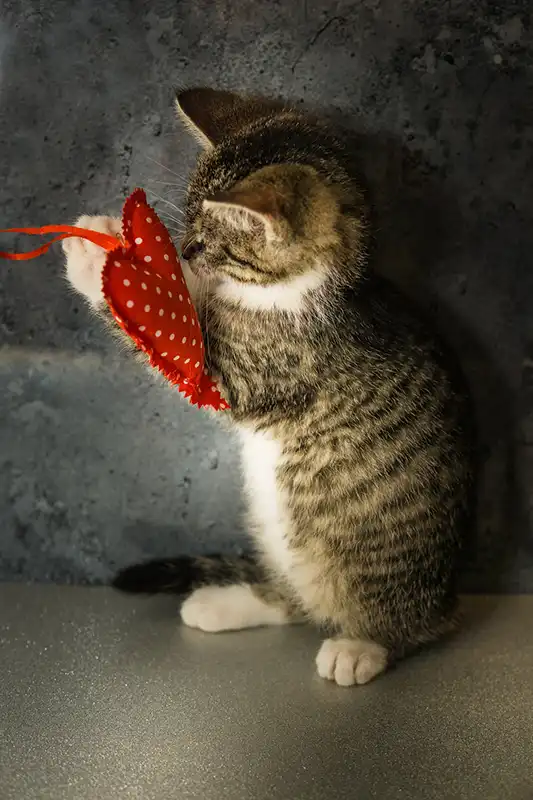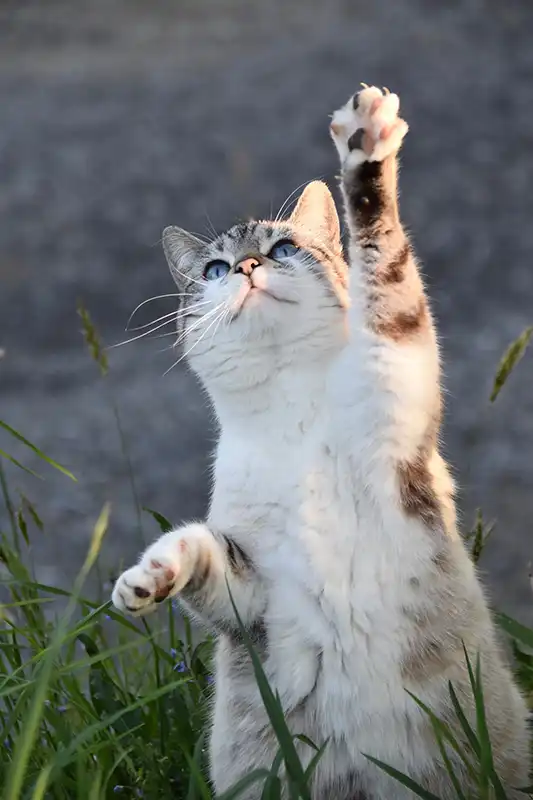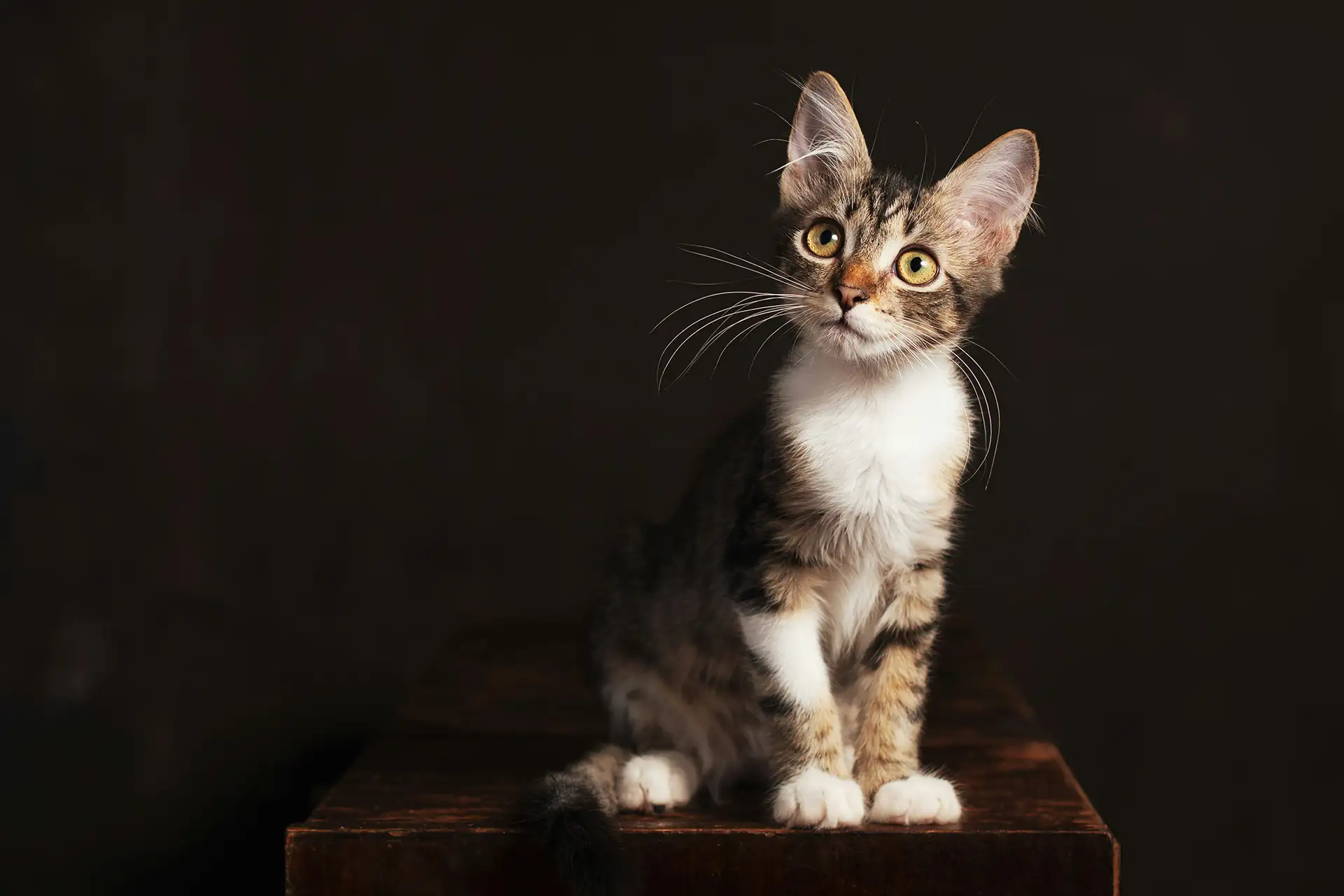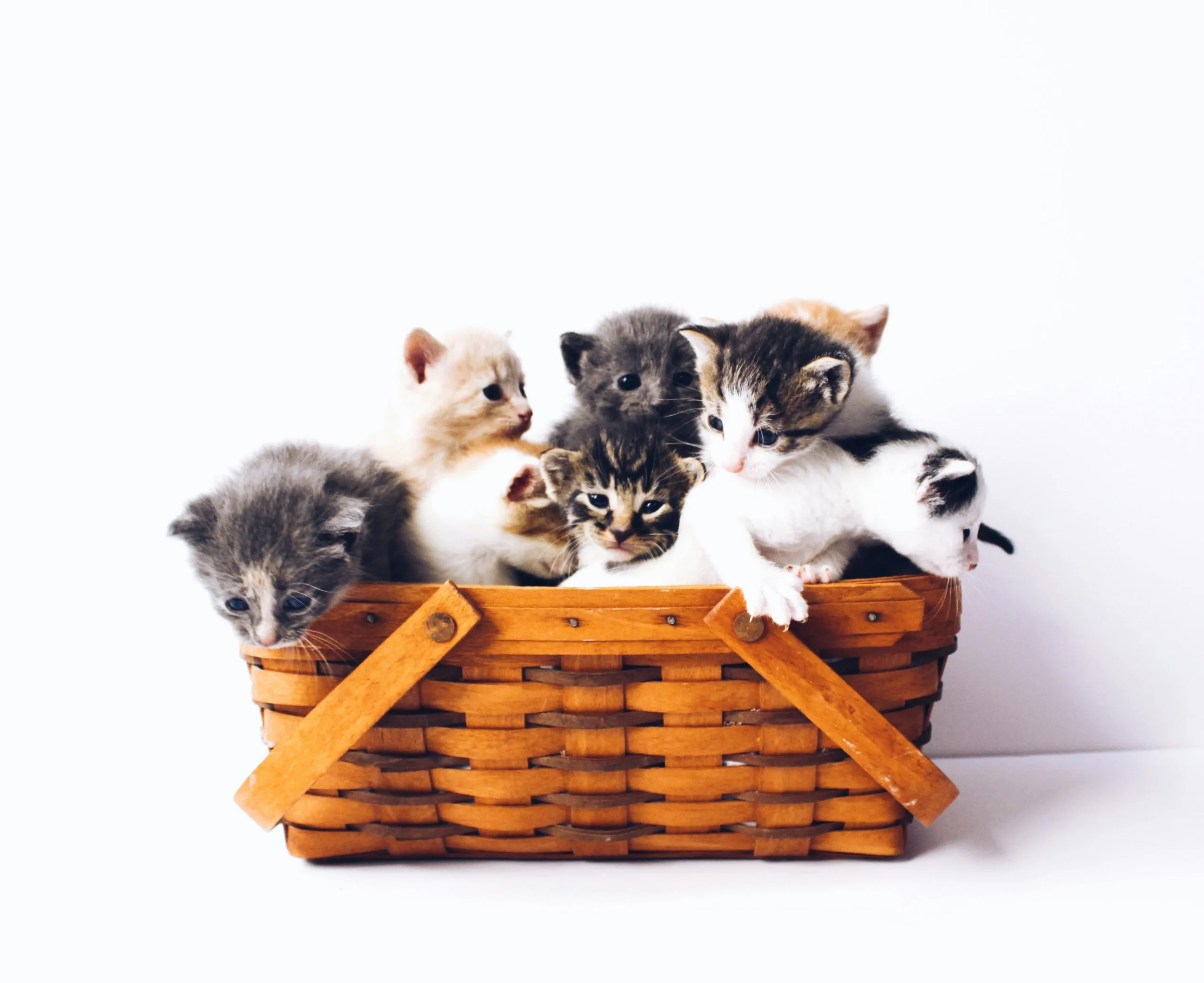Feeding your cat may seem as simple as filling a bowl, but what you choose to put in that bowl can have a major impact on your feline companion’s health, happiness, and longevity. At All Cats Clinic, our experienced veterinarians in Fayetteville, AR help pet parents across Northwest Arkansas understand the science of proper cat nutrition. From the earliest days of kittenhood to the golden years, your cat’s diet plays a vital role in maintaining a healthy weight, supporting their immune system, and preventing common feline health problems.
In this guide, we’ll explore the essentials of cat nutrition, including the importance of protein, hydration, and portion control, as well as how life stage, activity level, and health conditions influence dietary needs. By understanding the principles of a balanced feline diet, you’ll be better equipped to make the best feeding decisions for your furry pal.
Why Proper Nutrition Matters
Cats are obligate carnivores, meaning they rely on nutrients found in animal-based proteins to survive. Unlike omnivores, they can’t efficiently convert plant proteins into the essential amino acids they need. Taurine is a crucial nutrient for kitties. Taurine deficiency can lead to blindness, heart problems, and developmental issues in kittens.
A well-balanced diet does more than prevent deficiencies. It helps maintain lean muscle mass, supports healthy skin and coat, strengthens the immune system, and fuels daily activity. Poor nutrition, on the other hand, can contribute to obesity, diabetes, urinary tract problems, and digestive issues.
Learn more about nutrition guidelines by visiting the FDA website here. You can also read more about pet nutrition at the PetMD website here.
The Essential Components of a Cat’s Diet
Protein
Protein is the cornerstone of feline nutrition. Cats require more protein in their diet than many other species. This is because their bodies use it not just for building and repairing tissues, but also as a primary energy source.
Fats
Healthy fats provide concentrated energy, help absorb fat-soluble vitamins, and contribute to skin and coat health. Omega-3 and omega-6 fatty acids are particularly important for reducing inflammation and maintaining joint health.
Carbohydrates
Cats have a limited ability to digest carbohydrates. While small amounts can be part of a balanced diet, excess carbs can lead to weight gain and spikes in blood sugar.
Vitamins and Minerals
Essential micronutrients, like calcium, phosphorus, magnesium, and vitamins A, D, E, and B-complex, support everything from bone development to nerve function. These should come from high-quality, balanced cat food, not unregulated supplements.
Water
Hydration is crucial for kidney function, digestion, and overall health. Cats evolved to get much of their water from prey, so many are prone to low water intake when fed only dry food. You may want to get your kitty a fountain to encourage her to drink more.
Choosing the Right Food for Your Cat
Selecting the right food depends on your cat’s age, lifestyle, and health status. At All Cats Clinic, we help pet parents evaluate options based on quality ingredients, nutritional value, and individual needs.
Kittens: Require higher protein and fat content for growth, as well as DHA for brain development.
Adults: Need a balanced maintenance diet to sustain energy and support long-term health.
Seniors: Benefit from easily digestible proteins, joint support nutrients, and controlled calories.
Wet vs. Dry Food: The Great Debate
Both wet and dry cat food can be part of a healthy diet. Wet food offers higher moisture content, which helps with hydration and urinary tract health, while dry food can be more convenient and help maintain dental cleanliness. Many veterinarians recommend a combination to balance benefits.
Portion Control and Feeding Schedules
Overfeeding is one of the most common causes of obesity in cats. Your veterinarian can help determine the right portion size based on weight, activity level, and metabolism. Using a kitchen scale or measuring cup ensures accuracy.
Some cats do well with free-feeding, but many benefit from set meal times to prevent overeating and encourage healthy digestion.
Special Diets for Health Conditions
Certain health problems require specific diets:
-
Urinary Tract Health: Diets that control mineral content and support proper urine pH.
-
Kidney Disease: Foods lower in phosphorus and protein to reduce kidney strain.
-
Diabetes: High-protein, low-carbohydrate diets to help regulate blood sugar.
-
Food Allergies: Limited-ingredient or novel-protein diets to prevent reactions.
Never give your feline pal a special food unless specifically instructed to by your vet. Don’t be afraid to ask questions, though. That’s what we’re here for!
Recognizing Poor Nutrition
Although cats are hardy, they need good nutrition to thrive. Signs that your cat’s diet may not be meeting their needs include:
-
Dull or brittle coat
-
Weight loss or gain without a clear cause
-
Digestive upset, including vomiting or diarrhea
-
Lethargy or reduced activity
-
Increased shedding or flaky skin
Contact your vet if you notice any of these warning signs.
Tips for Healthy Feeding Habits
-
Provide fresh water daily, preferably in a pet fountain to encourage drinking.
-
Avoid excessive treats—these should make up less than 10% of daily calories.
-
Transition to new foods gradually to prevent digestive upset.
-
Store food properly to preserve nutrients and prevent spoilage.
FAQs About Cat Nutrition
How often should I feed my cat?
Most adult cats do well with two meals per day, while kittens benefit from three to four smaller meals. Ask your vet for more information.
Can I give my cat human food?
Some human foods are safe in moderation, but many—like onions, garlic, chocolate, and grapes—are toxic to cats. Always check with your vet first.
How can I help my cat lose weight?
Work with your vet to determine the right calorie intake, feed measured portions, and encourage daily play for exercise. Click here to read our previous post on feline obesity.
Visit Our Fayetteville, AR Veterinary Clinic for Cat Nutrition Advice
Nutrition is the foundation of your cat’s overall health. Are you looking for a great veterinary clinic in Fayetteville, AR? You can try searching for a vet near me, or you can call All Cats Clinic. Our veterinarians will help you design a feeding plan that meets your cat’s unique needs, supports long-term wellness, and keeps them purring for years to come.
Visit our diet and nutrition page here for more insight on the services we offer there.
This blog is meant to be informational only. Always consult with your veterinarian for the right medical advice, diagnosis, or treatment plan for your pet and follow their advice.






!Social Media Icons